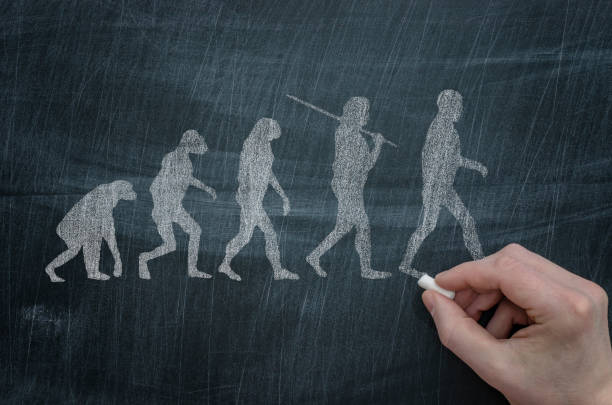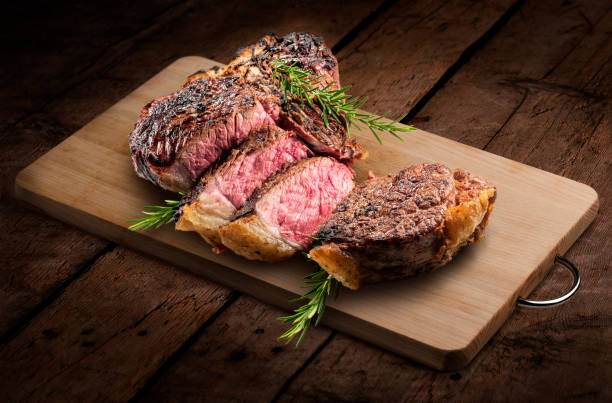Last Updated on May 16, 2023

There is no more heated dispute in the realm of nutrition than that between meat-eaters and vegetarians. The dispute is so heated that it makes one wonder if we were designed to be vegetarians from the start.
Some people follow a vegetarian diet for health reasons, while others are motivated by ethical considerations. On the other hand, some meat-eaters don’t give a second thought to whether they should or shouldn’t consume meat, while others will fight to the death for their right to eat animal flesh. When it comes to nutritional decisions, passions can run surprisingly high. Food is a matter of survival, and we still feel the need to defend our food sources deep down in our primate brains.
Today, we are less concerned with the meat industry’s ethics; this is not to say that they are unimportant; rather, we are more concerned with the biology involved.
This article is divided into two parts. First, we must consider if humans are “built” to be vegetarians or if we developed to be so? Then we’ll consider which choice is the healthiest.
Read: Navigating Food Allergies and Intolerances
So, are we carnivores or herbivores?
This is the first question to answer, and it appears to be straightforward anatomically. We don’t appear like carnivores; our teeth aren’t strong enough to rend flesh, and our stomachs are excessively lengthy. So, are we herbivores? No, our stomachs aren’t big enough, and our teeth aren’t quite right.
We appear to be omnivores, with bodies capable of handling both meat and plant materials. But it’s not quite that straightforward. It’s impossible to tell what an animal’s diet is only by looking at its teeth and gut. The panda, with its deadly canines and bamboo diet, is a great example.
However, it is true that most creatures have a gut that is tailored to their diet. Lions, for example, have massive, smooth-walled stomachs that can hold large amounts of meat. Meanwhile, microorganisms in the abdomens of many herbivores break down the tough elements of plant matter, creating huge plant-destroying factories.
We, humans, prefer to think of ourselves as unique, and in many respects, we are. However, we are incredibly ordinary when it comes to internal tubing.
The human intestine is remarkably similar to that of our closest cousins, monkeys and apes. As a result, if we want to work in harmony with our guts’ design, we should eat a diet that is at least similar to our cousins’.
Nuts, fruits, leaves, insects, and the rare bite of meat are found in almost every monkey and ape’s diet. Although you may have seen terrible footage of adult chimps killing and devouring baby ones, this is a rare occurrence when compared to the amount of non-meat goods consumed.
We can deduce from these facts that we are not necessarily vegetarians and that we have evolved to eat only the occasional nibble of meat.
Read: How Do Spices Boost Health and Flavor in Meals?
Meat-eating and human evolution

Some evolutionary experts believe that eating meat provided an important advantage to early humans. Meat is high in energy and protein, which may have aided in the development and maintenance of the large cabling bundle between our ears. According to the expensive tissue hypothesis, we must save metabolic energy elsewhere in order to have a larger brain. Our intestines were shortened to do this.
However, having a shorter gut meant that our diet needed to be of higher quality in order to offer enough nutrients. The animal-based diet is introduced. It’s worth mentioning that this hypothesis isn’t universally accepted.
Some academics argue that planning and conducting a hunt aided the development of language, communication, and complex societies. However, just because something has been done for millennia does not imply we must continue down the same route. Modern living is different; the possibilities on the dinner table are far more diverse. For example, our forefathers did not have access to tofu, and a human in a colder climate would have difficulty finding cashew nuts in their daily forage.
According to biology…
Humans can eat seeds, fruits, vegetables, roots, and a variety of other plant parts in general. However, our bodies are unable to fully digest all of them.
The cell wall, which is made up of fibre-like substances like cellulose, hemicellulose, and lignins, is the outermost layer of every plant cell. Because you lack the enzyme cellulase, you cannot digest these fibrous substances.
Cows, goats, and deer, for example, cannot generate cellulase on their own. They do, however, have helpful gut bacteria that produce it for them, but humans lack such bacteria. Despite this, our bodies create all of the enzymes required for the breakdown and absorption of meat, such as protease and lipase.
The size of an animal’s digestive tract is determined by two factors: its nutrition and gut microorganisms. The more calorie-dense the meal (as in any carnivore’s), the less time and microbial assistance is required for digestion and absorption — hence carnivores’ shorter gut. Herbivores, on the other hand, eat plants, which are low in calories.
Herbivores must eat more of these items to meet their daily calorie needs, and their digestive systems must work harder to extract nutrients, which explains why herbivores have a longer stomach.
Humans, as omnivores, can eat and digest both meat and plants, thus the length of your gut is somewhere in the middle.
Meat: In sickness and in health

It makes little difference whether it is natural for you to consume meat or not. From a medical standpoint, we should only consume meat if it is beneficial to our health. There has been a growing pile of information in recent years supporting the health benefits of being vegetarians, following a vegetarian diet and the health hazards of stuffing our faces with too many burgers.
Meat is high in protein and vitamin B-12, as well as iron, so it’s simple to understand how including meat in their diet would have helped our forefathers survive.
Protein is now much easier to acquire, as shown in nuts and beans, for example. Iron can be found in beans, cereals, nuts, and a variety of vegetables, and vitamin B-12 can be found in cheese, eggs, milk, and chemically fortified items. So a fully balanced diet is abundantly available for vegetarians.
With this in mind, we should probably be asking, “Is there a safe level of meat?” rather than “Should we eat meat?” “Which types are the worst?” In a nutshell, there are four sorts of meat: white, red, processed, and seafood.
Fish and white meat are generally thought to be healthy, as long as they aren’t deep-fried or wrapped in bacon. In the case of red meat and processed meats, however, the situation is reversed. Colon cancer and heart disease are linked to red and processed meats. The vast majority of studies show that consuming more of this meat is harmful. But determining how much is too much and what levels are safe is more difficult.
Conclusion
So, should we all be vegetarians and eat only fruits, nuts and vegetables? There will still be no definite answer. Humans have been eating meat for a long time without too much consequence. Although a diet low in meat is far healthier, some people just can’t get enough of the taste of it. And, nutritionally, we no longer require meat to provide proteins and vitamins as there are plants and supplements that can effectively substitute. Both sides have their perks and quirks but at the end of the day, the choice is yours.
Before you go…
Hey, thank you for reading this blog to the end. I hope it was helpful. Let me tell you a little bit about Nicholas Idoko Technologies. We help businesses and companies build an online presence by developing web, mobile, desktop and blockchain applications.
As a company, we work with your budget in developing your ideas and projects beautifully and elegantly as well as participate in the growth of your business. We do a lot of freelance work in various sectors such as blockchain, booking, e-commerce, education, online games, voting and payments. Our ability to provide the needed resources to help clients develop their software packages for their targeted audience on schedule is unmatched.
Be sure to contact us if you need our services! We are readily available.











